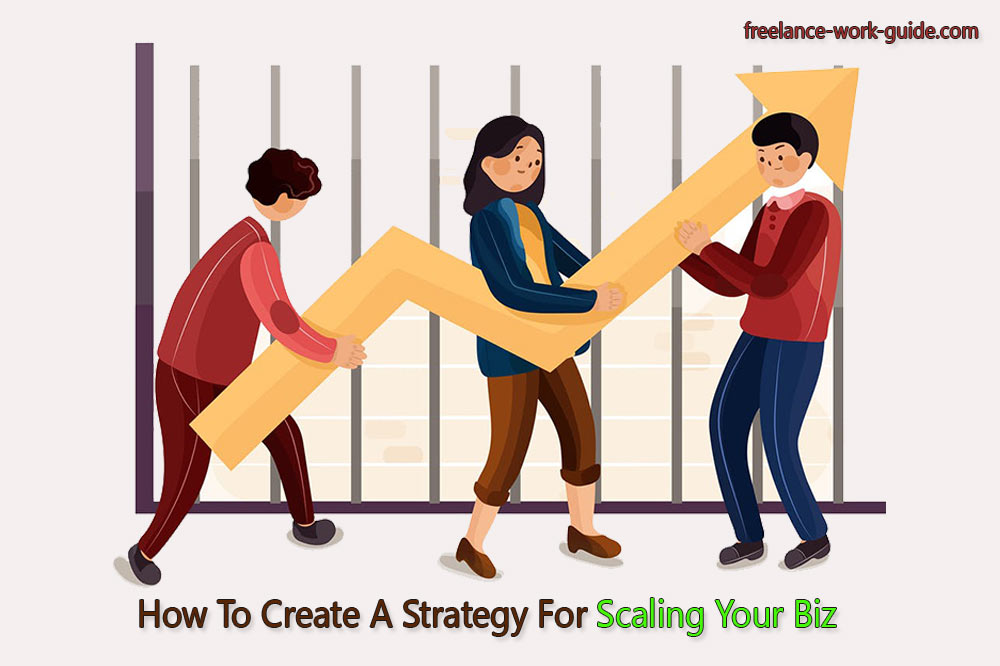
When you think of Fortune 500 companies, all of them started as start-ups and gradually scaled into the large and successful companies they are today. This can be your business in the future if you are looking to scale and continually grow.
Scaling your business is the natural progression after it has grown. Scaling means that you increase the capacity of your business to handle the processes that help it run smoothly. The increase in business will affect the business’s ability to deliver sales orders, deliver quality services, or deliver timely output reasonably. It creates a need for scaling your business.
When To Start Thinking About Scaling Your Business
When you begin a business, the goal is to grow the business over time and eventually create a well-known brand known for high-quality output. In the beginning, you may have a vague or fundamental idea of how you would need to scale your business to realize the vision you have for it. Scaling helps your business maintain success and then move to the next level of growth.
Scaling requires precision so that it matches the way the business is growing. The best way to scale a business is to do it to be sustainable for a long time. It is best to do scaling step by step. The lifespan of a business begins where the growth is linear, and this growth can be steady, or it can happen in bursts.
With time, it will get to an inflection point which leads to an increase in revenue. At this time, scaling is most important, and having a strategy that will guide this is key. The strategy will guide how you will put systems and procedures in place to scale your business sustainably for long-lasting results.
Here are some questions to ask yourself to help you create your scaling a business strategy:
Will This Business Idea Continue To Sustainably Generate Money In The Future?
If the answer is yes, then your strategy will reflect how to support the business to continue making money in the future. If your answer is no, you may need to reconsider and look at how to run your business profitably.
Who is Your Customer Base for Your Business?
It is important to identify your core customer base to increasingly customize your business to your target customer. This will guide your strategy for marketing and advertising. If your marketing efforts are too general, you will not capture your target customer and lose out on sales.
Who Is My Business Competition?
Before you create your scaling strategy, find out who your competitors are, what they are doing to succeed, and how strong their customer brand loyalty is. This will help you create a competing strategy that will get you new customers and maintain the ones you have. You will not copy what they are doing but you can borrow some tips and strengthen their weaknesses to make your business more marketable.
Are There Tasks You Can Automate?
If the answer is yes, look to use technology to make running your business easier. Tasks such as data entry or inventory-taking can be automated to make your business run more efficiently and become more profitable. Before scaling, it is advisable to have basic tasks automated to support the growth of the business.
Do You Have A Business Growth Plan?
If you answer yes, then you are ready to scale. If the answer is no, you need to have a detailed growth plan because it will inform the components you will focus on when scaling a business strategy.

What Areas To Consider Scaling
When thinking of creating a scaling strategy, you will have to consider aspects of the company, for example, the human resources you will need. Other business aspects to consider are how efficient your operations are, digitalization and modernizing processes, making the business efficient internationally, and the overall business growth strategy.
A business strategy will guide the way you run your business, and where you scale it will ensure that it will, in turn, lead to scaling all the areas of business that need to be scaled. It is important to have data from many sources as it will guide you on what your customers want and what they would like to see. Data helps you resolve existing and potential issues and reveal opportunities that will impact the scalability of your business.
What To Think About When Creating A Strategy To Scale Your Business
Scaling happens because there is growth in business that is steady and rising. Business growth that lasts long and is feasible will depend on customer loyalty. When creating a strategy to scale your business, ensure that the vision and mission of the business are not lost but are central to ensure that customer loyalty remains.
Related to this is you need to figure out what your primary competence as a business is. The main competence of the business is often the factor that will set you apart from the competition. Identifying this unique competency will help you invest in focused growth to ensure that customers keep coming back to you.
You will then need to look inwards into the business and not just outward. Scaling will often ensure that the business is serving customers efficiently even with business growth and output not affected. Inward looking will focus on ensuring that internal processes are also taken care of and working flawlessly.
Based on the scaling business strategy, this will involve looking at internal processes and refining them where necessary or doing away with what is not working. However, central to the key to having a successful scaling business strategy is to think of your employees. Happy employees will ensure the success of your business.
It is also important to consider your external relationships and how they fit into the scaling of your business. These relationships are suppliers, business partners, and third-party organizations. They will be crucial in the process of scaling up your business.
In Closing
Scaling is thinking about the overall business strategy and where you are headed in terms of growth and how to create and sustain that business growth. It requires that you are clear on what functions you can successfully scale to make your business more efficient. Have you begun the process of scaling your business?
This is a guest post contribution by Sierra Powell for
Start Up Donut















